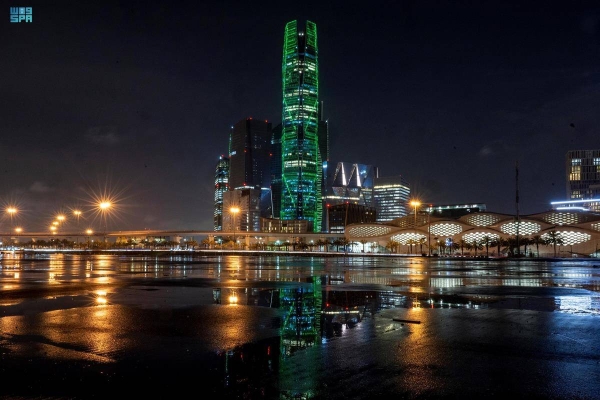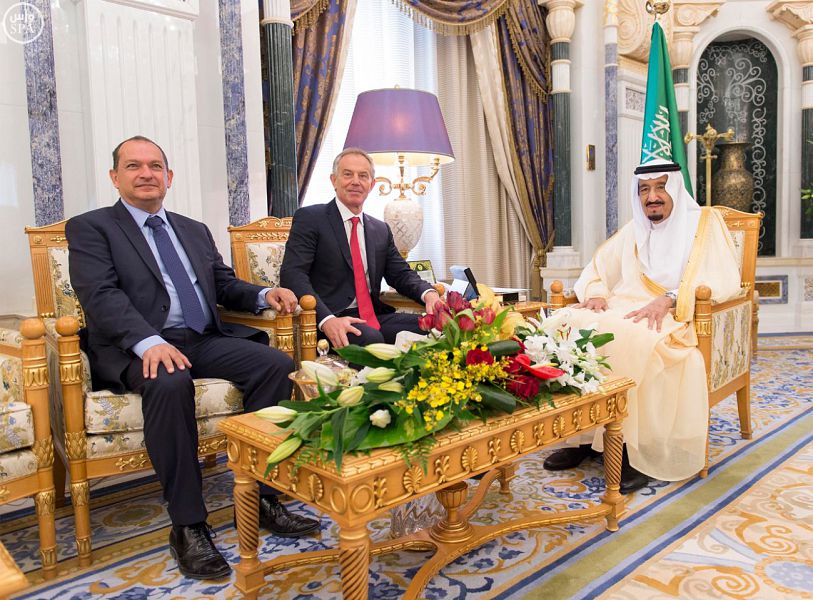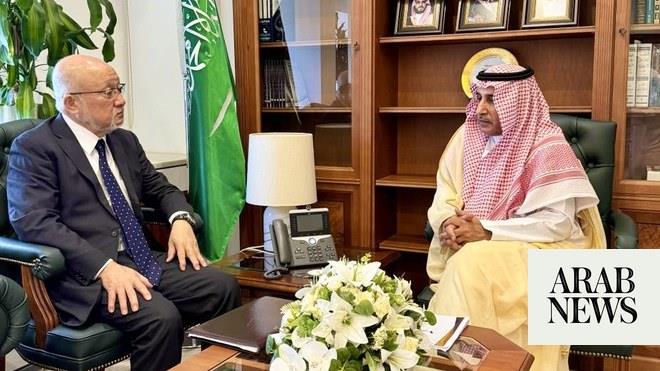
RIYADH: Saudi political researcher Salman Al-Ansari said that the Middle East is witnessing a “tsunami of peace” and that the Kingdom is currently “waging a war on warfare” through its restoration of diplomatic ties with Iran and Turkiye.
During an interview with Arab News on Friday, Al-Ansari recalled the phrase by Iraqi political theorist Dr. Omar Abdulsattar, who said: “Saudi Arabia is waging a war against warfare.”
Al-Ansari told Arab News: “Saudi Arabia is waging a war against warfare and that is actually true. The Kingdom solidified the (Gulf Cooperation Council) relations, then resumed normal relations with Turkey and now with Iran and Syria and others.”
Over the last year, the Kingdom has rekindled diplomatic relations with multiple countries including Turkiye, Iran, and Syria.
“The Kingdom is now setting its objectives clearly,” Al-Ansari said, adding that Saudi Arabia was defining its identity as a “global equalizer that doesn’t take sides in the current hot global rivalry.”
The Kingdom and Turkiye have turned a new page in their diplomatic relations and expanded the scope of their cooperation with multiple delegation visits including Crown Prince Mohammed bin Salman’s meeting with President Erdogan in Ankara on June 22, 2022.
Following the visit, a joint statement by the two countries detailed that the two leaders aimed to further strengthen relations and investments in multiple sectors, including energy and defense.
“That shows one thing — that peace is the objective,” Al-Ansari said.
Hosted by Chinese President Xi Jinping in Beijing, Iran and Saudi Arabia spent four days engaged in talks between March 6 and March 10. The dialogue resulted in an agreement to reestablish diplomatic relations and reopen embassies within two months.
Saudi Arabia and Iran formally restored diplomatic ties, agreed to resume flights between the two countries, started arrangements to reopen their embassies, and agreed to implement security and economic cooperation deals signed over 20 years ago — all within the last few months.
“China is the one and only nation that has a substantial leverage over Iran, and the Chinese were the only breathing mechanism for the globally sanctioned Iranian regime,” Al-Ansari said.
The Iranian regime has one choice, the political researcher said: “Either to change course and to act like a normal neighbor rather than a revolutionary one, or they may get called out and abandoned by their Chinese friends.”
During the Saudi-Chinese summit hosted in Riyadh in December, the two countries vowed to prioritize relations as part of their foreign policy and set a model of cooperation and solidarity for developing countries.
Historically, China’s relationship with the Middle East has been centered around trade, economics and investment.
In the last few years, China has demonstrated its evolving interest in expanding its political relations in the region and strengthening its diplomatic agenda to eventually become a “global peacemaker,” as Al-Ansari described it.
“China wants for sure to present itself as a global peacemaker and to set an example of how a reasonable superpower should look like. Overall, I think it’s a triple win…for all the three parties: Saudi Arabia, Iran, and China.”
China has invested heavily in relations in the Middle East while the US centered its focus on China and remained hands-off in its approach to facilitating peace agreements in the Middle East.
“I don’t think the US has disengaged from the Middle East. But perhaps they didn’t engage with agility and pragmatism,” Al-Ansari said.
“There’s no doubt that the US administration made a bunch of substantial mistakes with regards to its Middle Eastern policy since 2003,” he added, referencing the invasion of Iraq and the Obama doctrine.
“But putting all of that aside, the US was and is and will always remain the Kingdom’s biggest strategic partner. We simply cannot just put these historic relations behind our back just because of some miscalculations by some American officials.”
During the Jeddah Security and Development Summit, hosted by Saudi Arabia on July 16, 2022, President Joe Biden reiterated: “The United States is going to remain an active and engaged partner in the Middle East.
“We will not walk away and leave a vacuum to be filled by China, Russia or Iran. We will seek to build on this moment with active principle American leadership.”
Since President Biden’s address at the summit, China has brokered the reconciliation of diplomatic ties between Saudi Arabia and Iran and hosted multiple meetings with Saudi Foreign Minister Prince Faisal bin Farhan and Iranian counterpart Hossein Amir-Abdollahian. These led to a tripartite agreement between the Kingdom, China, and Iran to restore diplomatic relations.
Al-Ansari said that as the Kingdom sets itself up as a “global equalizer,” the role they have adopted “may not resonate well with the US for the time being.”
He added: “But I think only time will help to normalize this new reality.”
Also through a China-brokered deal, the last few months have witnessed a move for the resumption of diplomatic relations between Saudi Arabia and Syria.
As reported by Ekhbariya TV on March 23, 2022, Saudi Arabia and Syria are in talks to resume consular services between the two countries.
Al-Ansari added that China considers the Middle East as one of the most important regions in the world for three reasons including the fact that “40 percent of China’s energy imports come from the region, from the Middle East.”
Secondly, the Belt and Road Initiative, a China-led infrastructure development strategy, will pass through Saudi Arabia and Iran.
A third reason, Al-Ansari explained, is China wants to present itself as a “global peacemaker.”
Regarding the recent attacks on Palestine, Saudi Arabia has condemned the provocations in Al-Aqsa Mosque, and the second is the settlement expansion in the West Bank, racist comments that were made by some Israeli officials.
"Will there be peace between Saudi Arabia and Israel anytime soon? I personally hope so, but I believe at the same time that the ball is in the Israeli court right now and they should seize this peace momentum in the region. Absolutely," Al-Ansari said.










